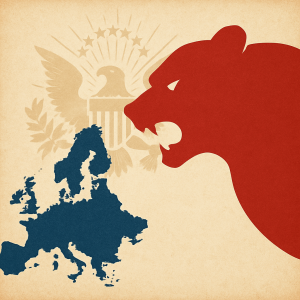There is only one hope to see this war end before it sets Europe and the world ablaze. It is that Vladimir Putin declares a ceasefire after proclaiming himself victorious – but can we really believe in this?
In any case, let us say that it is no longer unthinkable because concentrating his forces only on the Donbass could be ensuring him control of this region which he has much more often designated as his war objective than the subjugation of the entire Ukraine. If the Russian president were to decide tomorrow to limit his ambitions to these two large oblasts and to what he has already secured for himself, he would not have to back down and lose face, but let us not fool ourselves. Having conquered the Donbass, he could just as easily say that the odds of the battle are now in his favour and that the road to Kyiv is open to him again.
This temptation would even be so strong that it is the reason why the democracies must accelerate and increase their deliveries of tanks, ammunition and anti-aircraft means to Ukraine.
Vladimir Putin must not be allowed to harbour any doubts about the determination of the West not to let him absorb Ukraine. Above all, his military and those close to him must point out to him that it is time to think about ceasing fire in the conquered Donbass because his army is beginning to run out of men; that Russian families would find it hard to accept that he should declare a general mobilisation; that Ukraine is now equipped with the most modern weapons; that Germany will be able to find other suppliers of gas than Russia within a year; that Western economic sanctions will be further tightened; that an increase in trade with China will not be able to counterbalance them for a long time and that it is not in Russia’s interest to put itself in Mr. Xi’s hands.
Nothing is certain, nothing is played out, but once Ukraine’s level of armament gives him pause for thought and he can claim to have saved the Donbass from “Nazism” as he says, Vladimir Putin could, yes, envisage a cease-fire. He could even do so all the more easily since nothing would prevent him from considering that he could go back to war at the first opportunity and that a cease-fire proclaimed by Russia could, in the meantime, sow division among Ukraine’s allies and among Ukrainians themselves.
Indeed, it would not be impossible that many Ukrainians would then want to continue the fight until their country returns to its international borders. Some of the major democracies, for their part, would like to reduce arms deliveries as a gesture of goodwill to Moscow, while others would like to discourage further warfare but continue arming Ukraine.
In other words, a ceasefire would offer so many military and political advantages to Vladimir Putin that it would be difficult to imagine that it would not be one of his working hypotheses, but under these conditions, why should there be any hope?
In Ukraine, as in Great Britain, in Poland and in the Baltic States, there is no shortage of people who ask this question and say loud and clear that a cease-fire would only be a means for the Russian president to catch his breath before relaunching his offensive. Without being the least bit warmongering, one can even consider that only a scathing defeat of Vladimir Putin would allow Russia to get out of the dictatorship and enter this new century by breaking with the imperial revanchism that agitates the Kremlin, but let’s imagine, because it is obviously not impossible, that Russia does not propose a cease-fire.
Ukraine would not be able to propose one either, since being the victim of aggression, it would be tantamount to surrender. The war would go on for a long time and, without even mentioning the new cortege of death and destruction that would follow, this conflict would inexorably become international. Not only would it destabilise Africa and the Middle East by sowing famine, but it would increasingly place Russia and the Atlantic Alliance in a direct confrontation which they had always been able to avoid during the Cold War, so great would be its dangers.
There would be nothing desirable about this. All this is nothing less but a slide towards the abyss, but let’s see, on the other hand, what could happen if Vladimir Putin announced a cease-fire along the administrative borders of the Donbass.
Whether he annexes the region or recognizes its independence, he would have to take charge of it. He should ensure not even its prosperity, but its well-being, whereas the region is made up of broken down industries and is now mainly populated by elderly pensioners whose pensions need to be paid, and whereas Ukraine, which has remained Ukrainian is, on the contrary, extremely young, highly trained and dynamic, and will very quickly benefit from its integration into the European single market and massive aid from its Western allies.
In the aftermath of a cease-fire, it is true that Vladimir Putin could prepare himself for a new offensive, but the Ukraine that would begin to be called West Ukraine and that would quickly reconnect with its distant past as a European power would be in a position to challenge the Kremlin to a prosperous, young and free democracy, to a freedom and a Europeanism to which the new middle classes of the large Russian cities so strongly aspire.
In the aftermath of a cease-fire, Vladimir Putin would certainly have broken the deadlock in which he is currently locked. He would certainly have found the exit door he so badly needs, and Ukraine would have escaped its destruction and would be in a position to ensure its victory not through war but through peace.



